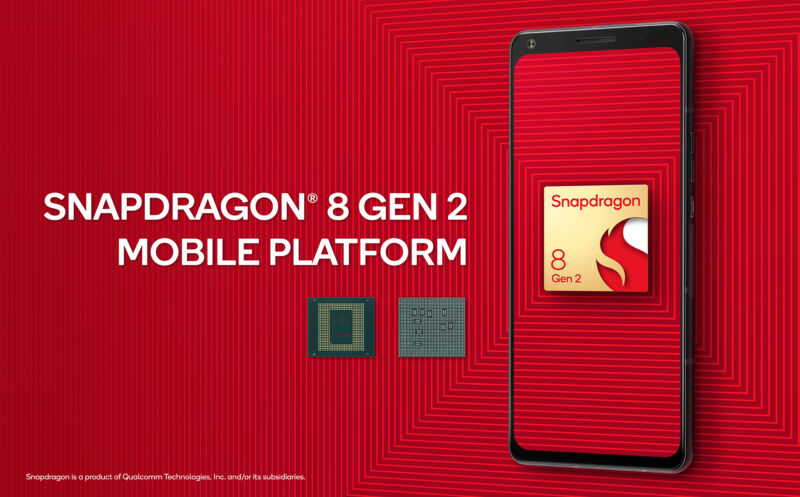
Enlarge (credit: Qualcomm)
Here's an interesting bit of news out of Mobile World Congress: Qualcomm says the Snapdragon 8 Gen 2 has been certified as the "world’s first commercially deployable iSIM (Integrated SIM)." What the heck is an iSIM? Didn't we just go through a SIM card transition with eSIM? We did, but iSIM is better than eSIM. We'll explain, but the short answer is that iSIM is the next step in the continual march to reduce the size of SIM cards.
OK, so SIM cards are (in the smallest "nano" size) little 12×9 mm plastic cards that you physically stick into your phone. SIM stands for "Subscriber Identity Module," and these cards mostly just identify you to your cell carrier, allowing your device to be provisioned for the cellular service that you pay a monthly bill for. The idea is that if you buy a new phone, or have multiple phones, you can just move the SIM card over, and—if there aren't any compatibility problems—your service could be easily moved between phones.
In ye olden days, these cards would store some actual data like contacts and messages, but with the advent of smartphones, all of that moved to the cloud. Today a SIM card can store up to 265KB of data in that 12×9 mm card, which is absolutely horrible data density considering similarly sized MicroSD cards can go up to 1TB, or about 4.2 million times more data. SIM cards are a huge waste of space in an industry that is very aggressive about saving space, so they needed to go.
Read 5 remaining paragraphs | Comments
from Tech – Ars Technica https://ift.tt/JHhi6nk
No comments:
Post a Comment